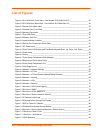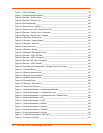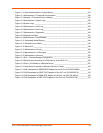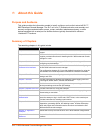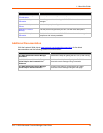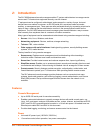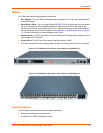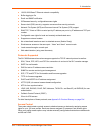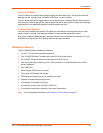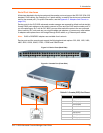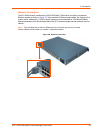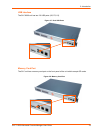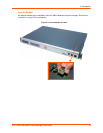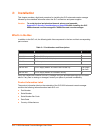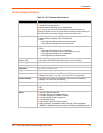
2: Introduction
SLC™ 8000 Advanced Console Manager User Guide 21
10/100/1000 Base-T Ethernet network compatibility
Buffer logging to file
Email and SNMP notification
ID/Password security, configurable access rights
Secure shell (SSH) security; supports numerous other security protocols
Network File System (NFS) and Common Internet File System (CIFS) support
RAW TCP, Telnet or SSH to a serial port by IP address per port or by IP address and TCP port
number
Configurable user rights for local and remotely authenticated users
Supports an external modem
No unintentional break ever sent to attached servers (Solaris Ready)
Simultaneous access on the same port - “listen” and “direct” connect mode
Local access through a console port
Web administration (using most browsers)
Protocols Supported
The SLC 8000 advanced console manager supports the TCP/IP network protocol as well as:
SSH, Telnet, PPP, NFS, and CIFS for connections in and out of the SLC console manager
SMTP for mail transfer
DNS for text-to-IP address name resolution
SNMP for remote monitoring and management
SCP, FTP and SFTP for file transfers and firmware upgrades
TFTP for firmware upgrades
DHCP and BOOTP for IP address assignment
HTTPS (SSL) for secure browser-based configuration
NTP for time synchronization
LDAP, NIS, RADIUS, CHAP, PAP, Kerberos, TACACS+, and SecurID (via RADIUS) for user
authentication
Callback Control Protocol (CBCP)
IPsec for VPN access
For brief descriptions of these protocols, see Appendix D: Protocol Glossary on page 334.
Access Control
The system administrator controls access to attached servers or devices by assigning access
rights to up to 128 user profiles. Each user has an assigned ID, password, and access rights.
Other user profile access options may include externally configured authentication methods such
as NIS and LDAP.




